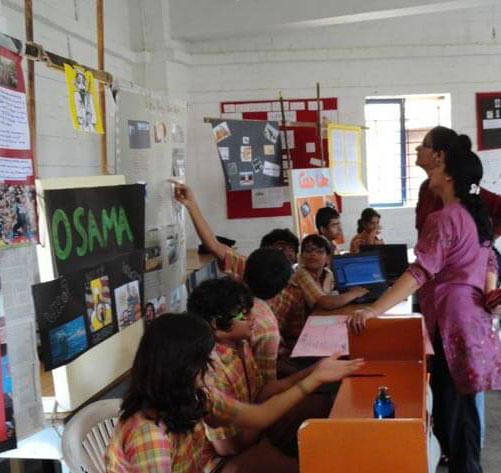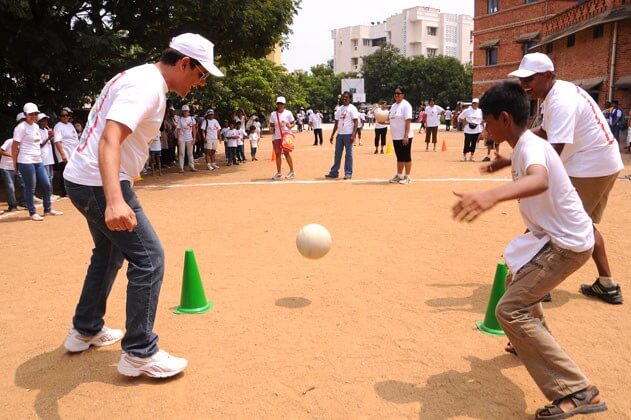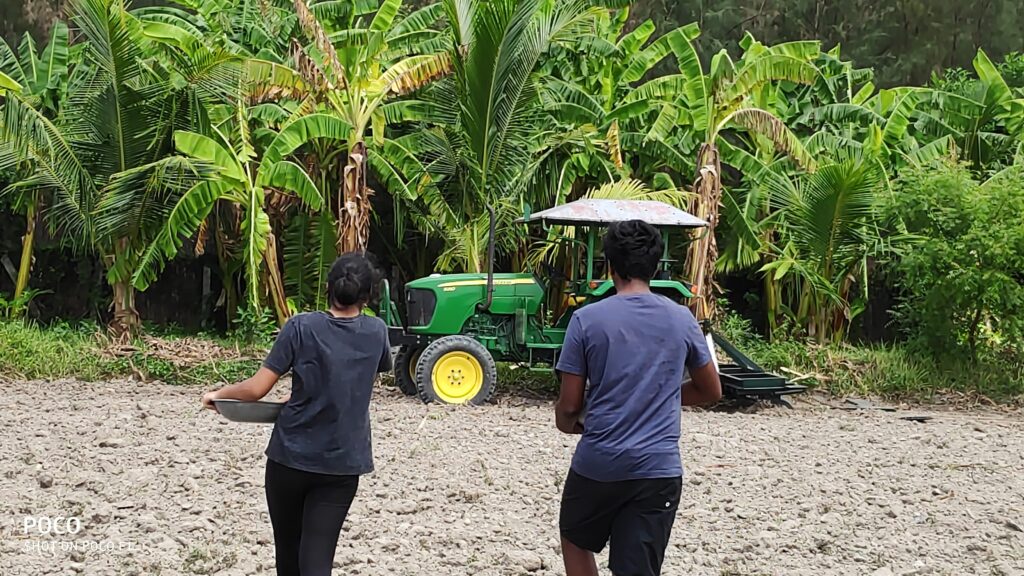
Academic Areas of Learning
Montessori program in Primary and Elementary
In the Primary and Elementary, children follow two to three-hour work cycles of individual activity in the morning and in the afternoon. In the Primary they can choose work from different areas including Exercises of Practical Life, Sensorial, Mathematics, Language and Culture. In the Elementary, they work in the areas of Languages, Mathematics and Cosmic Education.
Lower Secondary Cambridge program
The subjects offered to the children in Stages 7 to 9 are English, Hindi, Tamil, Mathematics, Science, History, Geography, Computing and Art
ICSE & ISC programs
The subjects offered to the children in current classes 9 & 10 are English, Hindi, Tamil, History & Civics, Geography, Mathematics, Physics, Chemistry, Biology, Computer Applications, Art, Commercial Studies and Environmental Science.
In current classes 11 & 12 children can choose four electives from a wide range of subjects in addition to English which is compulsory. They can create their own group of subjects that will meet their aptitude and interests and that would allow for the broadest opportunities going into College. The subjects presently on offer are Mathematics, Elective English, Physics, Chemistry, Biology, Geography, Computer Science, Business Studies, Commerce, Accounts, History, Political Science, Economics, Environmental Science and Art.

Co-curricular Areas of Learning
Physical education is offered to children in all ages based on their age-specific needs. This comprises athletics, team games, indoor games, and coaching in football, basketball Silambam and Parkour.
Theatre, Debating, Quizzing, etc. are also offered to children in the Secondary section.
Assemblies are held periodically in the Secondary section for celebrating festivals, interaction with guest speakers, class assemblies, and the Student Council elections. Various artists, performers, story tellers and scientists share their stories and talents with the children. Weekly assemblies are conducted by the Student Council. Student Council are free to address any issues with the rest of the student body and share decisions taken at the Council meetings. Read more about the Student Council here.
Farm School
Farm School is a metaphor for all activities that connect the school community to its natural and social environment. The earth-centric curriculum for the Farm School has its roots in an agricultural program offered at the school farm – Songlines – to children 12-15 years of age.


